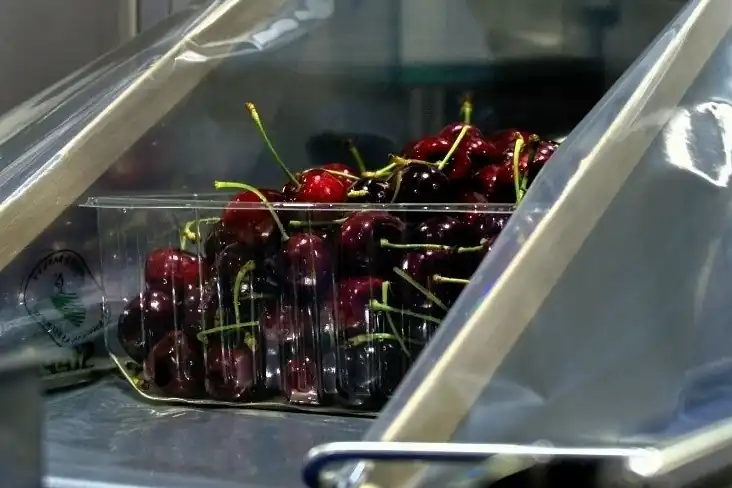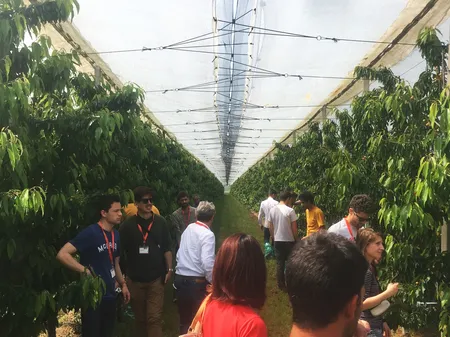A food innovation transforms cherry pulp unsuitable for export into a functional ingredient for healthier burgers. And the project is already attracting the industry’s attention.
Chile continues to stand out as a global powerhouse in cherry production, with the fruit becoming the queen of the country’s agri-food exports. But behind the records lies a lesser-told challenge: each season, a significant part of the harvest fails to meet the strict quality standards required by the Chinese market, which alone absorbs over 90% of Chilean production.
Cherries that are too small, unevenly colored or with insufficient Brix levels are excluded from the export channel.

An alternative use for cherries
So what can be done with fruit that cannot travel but remains perfectly edible? A surprising answer comes from research: turning it into burgers.
Chile, cherry pulp burgers: less fat, more value
The idea, as innovative as it is bold, stems from the initiative of professor and researcher Nelson Loyola, lecturer at the Universidad Católica del Maule. His team developed a recipe in which cherry pulp is incorporated into the mix of traditional burgers, creating a healthier product with a distinctive sensory profile.
“The goal is twofold: to reduce waste from non-exportable fruit and to offer a healthier alternative to a food perceived as junk,” Loyola explained.
In the trials, different dosages of pulp were tested – 8%, 12% and 15% – with detailed analyses on pH, moisture, fat content, color, texture and microbiological parameters according to Chilean health regulations.
Promising test results
The results were promising: the cherry version showed up to a 16% reduction in fat content compared to the conventional counterpart.
Crispier, tastier, and with an extra edge
Even in sensory terms, the new burgers passed the test: panelists particularly appreciated the crispness, pleasant taste and good texture, although some detected a slight salty note, attributed to the commercial base used as a reference.
The project has already been patented at Chile’s National Institute of Industrial Property and is now in the assessment phase for industrial scalability. Some meat sector companies have shown interest, with concrete possibilities of commercialization in Chile and Brazil.
New perspectives for the sector
Cherries not just for export: a new agri-food model
For Loyola, this innovation represents much more than a scientific curiosity. It is the symbol of a paradigm shift needed for the future of Chilean fruit growing, still too tied to the logic of exporting unprocessed raw material.
“We cannot continue exporting only fresh fruit. Without innovation and technology, there will be no sustainable development,” the professor stated.
The risk of depending almost entirely on a single market, such as China, is evident: “A single damaged shipment can jeopardize the entire season.”
In this sense, the “cherry burger” becomes a bridge between two apparently distant agricultural worlds – fruit growing and livestock – which in regions like Maule can coexist in a virtuous way.
Finally, the project meets the new demands of consumers, increasingly attentive to healthy, innovative and sustainable food.
Source: www.portalfruticola.com
Image source: Portal Fruticola
Cherry Times - All rights reserved











